- Home
- Linda Howard
Burn: A Novel Page 4
Burn: A Novel Read online
Page 4
“Can I ask you a question?” she finally said.
Ms. Smith looked faintly interested. “Of course, but I might not answer it.”
“Fair enough. How long have you worked here?”
“A little more than two years.” She didn’t seem surprised by the question. “It’s obvious I’m low man on the totem pole here. That doesn’t mean I’m not good at my job. I’ll work my way up.”
“How old are you?”
Ms. Smith gave a bark of laughter. “That’s more personal than I expected, but I don’t mind telling you. I’m twenty-seven. Yes, I’m young. I understand your concern. But I’m here to help, and I won’t always be in one of the back offices.”
The straightforward ambition appealed to Jenner more than any generic, diplomatic reassurance would have. She glanced around the small office, thinking that Al Smith might be leaving it sooner than she’d expected. Her gaze fell on the shelf behind the desk. There were a couple of plants, smaller and less perfect than those in the lobby, and some simply framed snapshots of Ms. Smith and another woman smiling into the camera, their arms looped around each other’s shoulders. The pose struck Jenner as somewhat romantic, and she stared at the photos a moment too long.
Ms. Smith glanced over her shoulder at the photos, and her mouth tightened. “Yes, Ms. Redwine, I’m a lesbian—but don’t worry; you aren’t my type. Skinny little blondes don’t appeal to me.”
Judging from the photographs, Jenner would say Ms. Smith preferred tall, curvy redheads. To each his—or her—own.
Jenner smiled, relaxing. She liked this plainspoken, up-front woman. “I don’t have an inheritance,” she admitted, digging into her bag and pulling out her wallet. Opening it, she pulled out the newspaper clipping and laid it on the desk in front of Ms. Smith. Next she took out the lottery ticket and placed it beside the piece of newsprint.
Ms. Smith gave her a curious look, then picked up a pair of glasses and slid them in place. She looked down at the two pieces of paper, and Jenner watched her expression change as she realized what she was seeing. “Holy sh—Excuse me. Is this what I think it is?”
“Yes.”
Al Smith abruptly sat back. With one finger she adjusted her glasses, as if to make certain she was seeing properly. She looked back and forth from the newsprint to the lottery ticket, comparing each number much as Jenner had done. Finally she lifted her head, and looked her new client in the eye. For the first time there was a twinkle there as she said, “I think skinny blondes just became my type.”
Jenner was surprised into a snort of laughter. “Sorry. My type comes with a penis. Besides, your redhead could probably beat me up.”
“She could,” Al admitted. She and Jenner grinned at each other, two tough-minded young women who recognized similar qualities in each other. They were both used to working hard for what they had. Al no doubt made way more money than Jenner did, but she was still fighting and clawing her way up the career ladder.
Jenner didn’t know anything about investments, but she understood people, and how the pecking order worked. That lottery ticket represented a huge stepping-stone to Al, just as it did to her. By bringing in this size of an account, Al would leapfrog over everyone else on her level, and would quickly move into one of those larger offices. With her added influence, she would gain other accounts, and the effect would snowball. If she was half as good as Jenner thought she might be, Al Smith could one day have her own investment firm, or at least be a senior partner at Payne Echols.
Al sobered, surveying Jenner over the top of her glasses. “Most lottery winners are broke within five years, no matter how much they win.”
A chill rippled over Jenner’s skin. She couldn’t imagine how she could possibly lose that much money, but the possibility made her feel a little sick to her stomach. “That’s why I’m here. I don’t want to be broke in five years.”
“Then you’ll have to be very careful. The only way to completely protect the money is to set it up in an irrevocable trust that will pay you X amount every year—or every month, however you wanted to set it up—but you’d lose control of the principal, and you don’t strike me as the type of person who would like that.”
Everything in Jenner rebelled at the idea of letting someone else have control of her money, even though the act would be voluntary. Irrevocable. She didn’t like the sound of that.
“That’s what I thought,” Al said drily, reading Jenner’s expression. “So … whether or not you’re insanely rich in five years, or broke and working a dead-end job, is entirely up to you. If you can’t turn down the moochers, you’ll go through this pretty fast. I’d strongly recommend either an irrevocable trust or getting the winnings in a yearly payout rather than lump sum. Lump sum is the smartest choice, if you can leave it alone.”
“I can leave it alone,” Jenner replied, thinking of Jerry. “I want it protected, invested, where no one can get to it without my in-person say-so. My dad—” She stopped, her expression wry. “He’s the main one I’ll have to watch out for. Let’s just say he doesn’t believe in working for what he has.”
“All families have one like that,” Al observed. “Okay, let’s start working out a plan. Lump sum, you’ll probably get about”—her fingers danced over a calculator—“a hundred and fifty million dollars.”
“What?” Jenner sat up straight. “What happened to the other hundred and forty-five million?”
“Taxes. The government gets what it wants before you get anything.”
“But that’s almost half!” She was outraged. Yeah, a hundred and fifty million was still an incredibly hefty amount of money, but … but—she wanted the rest of it, too. She’d won it, fair and square. Yeah, she’d known, vaguely, that she’d have to pay taxes, but she hadn’t realized the hit would be that big.
“Sure is. If you add up all the taxes—income, social security, sales taxes, the taxes on gasoline and the phone bill and everything else, it isn’t unusual for people to end up paying over sixty percent to the government, but a lot of it is hidden. If the average guy realized how much Washington is sucking out of his pocket, there’d be riots in the streets.”
“I’ll carry the pitchfork,” Jenner muttered.
“I bet you would. Still, we can put a hundred and fifty million to serious work.” She put some more numbers into the calculator. “A return rate of four percent would give you an annual discretionary income of around six million, without ever touching the principal. And four percent is a low estimate. You should make more.”
Okay. Wow. Six million a year, without drawing down the principal at all. She didn’t need six million, she could live on a lot less, so that much could stay in her investments, working and earning. The more she had, the more interest it earned, and her worth kept growing. She felt as if a door had just opened, and she could see what was inside the room. She got it.
All she had to do was be smart, and not blow it.
Al launched into a mini-lecture about the variety of investments available—stocks and dividends, Treasury bills, and high-level debt. Jenner didn’t pretend to understand it all, but she absorbed what she could and asked a hundred questions. She set her own requirements: no one would be moving her money around without her permission. She didn’t want to find that Al or anyone else at Payne Echols had decided to invest her money in a risky stock or whatever, and she’d lost everything. She wanted to be the final word on every decision. She also didn’t want anything at her house that would leave her open to theft. She wouldn’t put anything past Jerry. He’d do whatever he could to get his hands on the money. People like him were a big part of the reason most lottery winners were broke within five years.
Al set to work formulating a plan. A small part of the money—a hundred thousand—would be put in a bank for Jenner’s immediate use. Most of it would be in a savings account that she could easily access, moving money to checking as she needed it. She would also need a safe-deposit box where she could keep all her papers, and no one e
lse could get to them unless she personally granted that person access. Al would work up an investment plan, and when Jenner claimed her winnings she could have the money transferred directly into those accounts.
Jenner breathed a sigh of relief. She wouldn’t claim the money until everything was in place, but Al said she’d put everything else on the back burner and get all the paperwork prepared. In another week, at the latest, she’d be ready.
Once the plans were hammered out and she was back in the Goose, Jenner blew out a huge breath. She’d walked out of Payne Echols somehow … changed. She was part of the financial world now, and it felt strange, but exciting. Her heart was beating faster, and she felt like laughing and dancing. She wanted to celebrate. She was a multimillionaire! Well, almost. Soon. A week at the most.
She glanced at her watch. Michelle would be at lunch. Grabbing her cell phone, she paused for a split second as she considered how expensive cell minutes were—maybe she should wait until she was home, and use the regular phone—then reality smacked her in the face again and she laughed. Her cell phone bill didn’t matter anymore. She dialed Michelle’s number.
Michelle answered with a crisp, “What’s wrong?” because Jenner almost never called during the day.
There was no easy lead-up, no way other than to blurt out the truth. “I won the lottery.”
“Yeah, right. Seriously, what’s up? Is Dylan pestering you? Has the Goose died?”
“No, the Goose is fine. I won the lottery,” Jenner said again. “The big one. Two hundred and ninety-five million, though I’ve just met with a financial consultant and she says after taxes I’ll end up with a lump sum of about one-fifty Million.”
A long moment of silence stretched out. Finally Michelle said, in a small, faint voice, “You’re serious.”
“As a heart attack.”
The next sound was a piercing scream. Jenner laughed, then screamed along with Michelle. She sat in the Goose, cell phone to her ear, and laughed until tears ran down her cheeks. Her life had changed and she knew it, but at least Michelle was there for her.
“If you’re pulling my leg, I’ll kill you,” Michelle finally choked out.
“I know. It’s hard to believe. I just checked my ticket last night, and I’ve been scrambling since then to get things set up. You’re the first person I’ve told—well, except for the financial person. Don’t tell anyone else yet.”
“My lips are zipped. Oh my God. I can’t believe it. You’re rich!”
“Almost. Soon. Maybe next week.”
“That’s close enough!” Michelle whooped again. “Girlfriend, we are going to celebrate big time at the Bird tonight, and drinks are on you!”
Chapter Three
HABIT WAS A WEIRD THING. EITHER THAT, OR SHE STILL couldn’t quite believe what was happening to her. Whatever the reason, Jenner went in to work her regular shift at Harvest that night; celebrating with Michelle would have to wait until afterward. She didn’t make the phone call to begin the process of claiming her winnings, either, even though Al was hard at work getting things ready. She felt almost as if she were prodding a sleeping tiger, and once that tiger woke up, everything would be out of her control and in the tiger’s.
She wasn’t ready to tell the world yet. She wasn’t ready to abandon all the normal aspects of her life. So she put on the ugly polyester shirt once again, went into work, and donned the coveralls and hair covering. She joked with Margo, she ate her usual sandwich, she did her job—and all the while she had the weird sense of being in two worlds at the same time, as well as feeling sharp, unexpected pangs of grief. She might never see these people again, and though she wasn’t close friends with any of them, they were still a huge part of her everyday life. As soon as she went public, she probably wouldn’t be able to do ordinary things, at least for a while. And really, would she want to work in a meat-packing plant once she had all that money? No, she wouldn’t, not for a single minute. But for now, this moment, she didn’t have the money and ordinary things felt special, as if she should savor them and commit them to memory.
After work, though, she changed clothes and she and Michelle hit Bird’s, where she bought their drinks, they danced almost nonstop, and they laughed at everything and nothing. Happiness fizzed like ginger ale in her veins. She was young, and she was rich! How could life get any better? So what if she was spending most of her cash, and payday was still three days away? She had gas in the Goose, food in the house, and celebrating with Michelle was more important than worrying about money. In a few days, she’d never have to worry about money again.
Morning brought reality with it. Once again, there were calls she had to make and things she had to do.
Jenner took a deep breath and dialed a very important number. When the call was answered, she had to take a second deep breath. “I have the winning ticket,” she said baldly. “What do I need to do?”
“Are you the sole ticket holder?” The man who had answered sounded almost disinterested. Maybe they got a lot of calls from people claiming to be the winner. Probably she was something like the fiftieth person to call. Grimly she imagined all those other people trying to claim her winnings. She could just see them sitting at home working on manufacturing a fake lottery ticket, trying to get it just right, hoping they could get the money and disappear before the real winner came forward.
“Yeah. Yes.”
“You’ll need to bring in the winning ticket, of course, as well as a photo form of identification, and proof of your social security number—if not your actual card, then a pay stub, or something like that, that shows your number.”
Jenner tried to think where her social security card might be, but she came up blank. She couldn’t remember the last time she’d seen it. Maybe she could find one of her pay stubs, though. What on earth had she done with the last one? She began to panic. If she couldn’t find a pay stub, what would she do?
Wait until she got another paycheck, that’s what. The common-sense reply loosened the sudden tightness in her chest, let her breathe again. “Okay, what else?”
“That’s it. Ticket, identification, social security verification. When will you be coming in?”
“I don’t know.” That depended on how long it took her to find a pay stub—if she could find one. “Tomorrow morning, probably. Definitely by Friday afternoon. Do I need to make an appointment?”
He gave a little laugh. “No, that isn’t necessary. Our office hours are from eight thirty to four thirty.” He gave her the address, which was on the seventh floor of a building downtown, close to city hall. She’d never been to city hall, but she bet parking was a bitch. She’d be better off taking the bus, instead of driving.
After thanking the man and hanging up, she began tearing through her closet and old purses, looking for her social security card. She’d always been careless with it, because, hell, she had the number memorized, and it wasn’t as if she had anything anyone would want. Well, now she did have something millions of people would want, and she steadily swore under her breath at her own stupidity as she looked in every pocket of every old wallet she could find. She would never, ever again be so careless. If she ever found that damn card, it was going in the safe-deposit box, which she didn’t have yet, with the rest of the important stuff she didn’t have yet, but soon would.
Finally she gave up. The card was probably long gone, incinerated in some trash dump somewhere. She’d had it when she got her driver’s license, obviously, but renewing the license didn’t require one, so she hadn’t kept track of it—and she’d moved at least three times since getting her license.
That left a pay stub for proof. She didn’t keep her pay stubs, either. She usually either dropped them in her bag when she got her checks cashed, or put them in the Goose’s glove compartment. She didn’t let the Goose get filled with clutter, because the poor thing looked bad enough as it was, but she couldn’t remember when she’d last gathered up all the pieces of paper that seemed to accumulate.
; She hurried outside, unlocked the passenger door, and leaned in to open the compartment. Napkins from fast-food places practically exploded outward, along with ketchup squirt-packs, little salt and pepper packets, drinking straws, melted peppermints, gum—and two crumpled pay stubs. Jenner grabbed them, closing her eyes as she held them to her chest and sent a silent thank-you upward in case God was listening or something.
She took all of the debris and the pay stubs inside, where she carefully stored one of the stubs in her purse with the ticket. Then she took a pair of scissors and carefully cut the remaining pay stub into tiny bits, which she flushed down the toilet. From now on, she had to be careful with every bit of paperwork.
She checked the time: almost noon. She didn’t have enough time now to get downtown and back before going to work, and something in her still wouldn’t let her blow off her job. Maybe next week, she thought. Duh! She’d better find out how long it would take to actually get the money, because she had to live until then.
She grabbed the phone and hit Redial. When the same guy answered, she asked, “I called a little while ago. After I bring in the winning ticket, how long does it take to actually get the money?”
“Four to eight weeks,” he replied.
“Holy sh—! You’re kidding.” She was flabbergasted. Damn good thing she hadn’t quit work yesterday!
“No, processing the claims are time-consuming, but we take pains that no mistakes are made.”
“Thanks,” she said, hanging up. She wanted to kick something. Eight weeks! She couldn’t even wait eight weeks to claim it, because the processing wouldn’t start until she did so. The sooner she got to the office, the better—and then she’d still have to work at that damn meat-packing plant for maybe two more months.
There was only one person she could call to vent, so she dialed Michelle’s number.
“Two months!” she said, incensed, when Michelle answered. “It’ll take them almost two months to get the money to me!”
“You’re shittin’ me.”

 Mr. Perfect
Mr. Perfect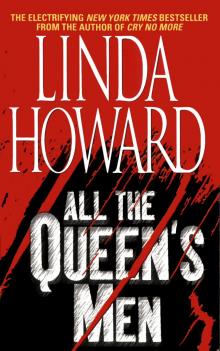 All the Queen's Men
All the Queen's Men Midnight Rainbow
Midnight Rainbow Diamond Bay
Diamond Bay Dying to Please
Dying to Please The Woman Left Behind
The Woman Left Behind Come Lie With Me
Come Lie With Me Drop Dead Gorgeous
Drop Dead Gorgeous To Die For
To Die For Ice
Ice Overload
Overload Shadow Woman
Shadow Woman Veil of Night
Veil of Night White Lies
White Lies Son of the Morning
Son of the Morning The Complete Mackenzies Collection
The Complete Mackenzies Collection Lake of Dreams
Lake of Dreams DeathAngel
DeathAngel Loving Evangeline
Loving Evangeline Burn
Burn Mackenzie's Magic
Mackenzie's Magic Against the Rules
Against the Rules Burn: A Novel
Burn: A Novel A Lady of the West
A Lady of the West Almost Forever
Almost Forever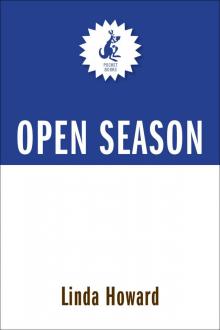 Open Season
Open Season Now You See Her
Now You See Her Prey
Prey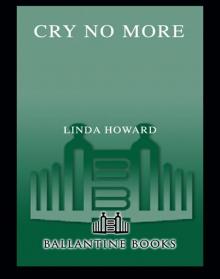 Cry No More
Cry No More Sarah's Child
Sarah's Child Angel Creek
Angel Creek Death Angel
Death Angel Kill and Tell
Kill and Tell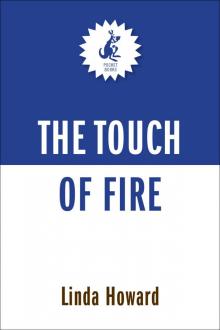 The Touch of Fire
The Touch of Fire Raintree: Inferno
Raintree: Inferno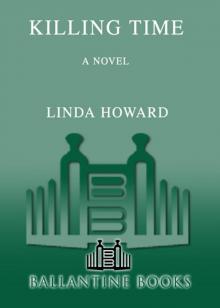 Killing Time
Killing Time Cover of Night
Cover of Night Tears of the Renegade
Tears of the Renegade Heartbreaker
Heartbreaker The Cutting Edge
The Cutting Edge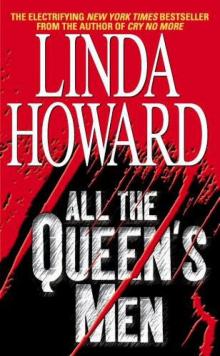 All The Queen's Men cs-2
All The Queen's Men cs-2 Veil of Night: A Novel
Veil of Night: A Novel Blood Born
Blood Born The Complete Mackenzie Collection
The Complete Mackenzie Collection Mackenzie's Magic m-4
Mackenzie's Magic m-4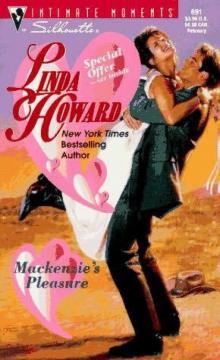 Mackenzie's Pleasure m-3
Mackenzie's Pleasure m-3 Raintree
Raintree A Game Of Chance m-5
A Game Of Chance m-5 Prey: A Novel
Prey: A Novel Lethal Attraction: Against the RulesFatal Affair
Lethal Attraction: Against the RulesFatal Affair The Raintree Box Set: Raintree: InfernoRaintree: HauntedRaintree: Sanctuary
The Raintree Box Set: Raintree: InfernoRaintree: HauntedRaintree: Sanctuary The Woman Left Behind: A Novel
The Woman Left Behind: A Novel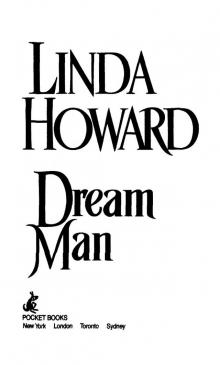 Dream Man
Dream Man Frost Line
Frost Line Kill and Tell cs-1
Kill and Tell cs-1 Shadow Woman: A Novel
Shadow Woman: A Novel Mackenzie's Mission
Mackenzie's Mission Strangers in the Night
Strangers in the Night Running Blind
Running Blind